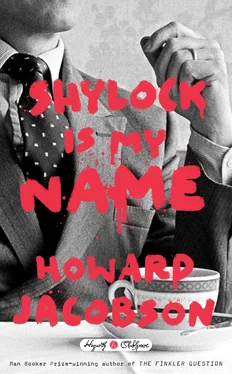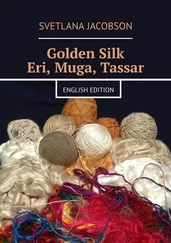“So you’ve already met him?”
“Met him, no. Know of him, yes. Everyone round here knows of him. He’s a roué of repute and plays football for Stockport County.”
“And that’s bad?”
“From a football fan’s point of view it’s very bad. Stockport County isn’t even a League club. Though as a local personality he enjoys a modicum of fame. In the north anyway. He behaves badly on the field of the play, appears on television quizzes in the company of comedians, laughs like a ninny at their jokes, makes none of his own, and advertises underwear and trainers. Can you imagine having a man who advertises underwear for a son-in-law? Only on local buses, I grant you, but that somehow makes it worse. On top of everything else he has going against him he’s provincial.”
“You would prefer your daughter’s suitor to be metropolitanly unsuitable?”
“Don’t worry. He’s that too. He makes it into the gossip columns and has had I don’t know how many wives. I wouldn’t be surprised if he’s married to at least one of them still. Not all that long ago he was slapped with a seven-match suspension — itself suspended — for giving a Nazi salute after scoring a goal. Apparently it was his first in two seasons.”
“His first Nazi salute?”
“His first goal.”
Shylock took a moment to digest all he’d heard. Then he asked, “Have you decided what you are going to say to him?”
“I will ask him what a Nazi’s doing with a Jewish girl?”
“I can tell you what he’ll answer. He’ll say he’s saving her from the stain of having a Jewish father.”
“Times have changed. He’ll be both too stupid and too smart to say that. He has already publicly apologised for the salute which he puts down to a moment of excitement. He says he only intended to punch the air. He says he doesn’t know where the Nazi bit came from. And he’s promised he will never do it again. What if he sees Beatrice as a way of making amends?”
“He could be genuine.”
“Genuinely what?”
Shylock looked out towards Alderley Edge, as though the word he needed could be out there. “Penitential?”
“It’s not a term I associate with him, I have to say.”
“You could be wrong.”
“And how will I ever know that?”
“There are ways of finding out.”
“What? By putting the question to him directly? Are you penitent, Mr. Howsome? He’ll think that’s a fancy way of asking him to take a penalty. Score and you get to sleep with my daughter.”
“Which isn’t all that wide of the mark. You could tell him if he really wants your blessing there’ll be a price. He will have to make himself suitable.”
“Suitable? What — divorce his other wives? Take elocution lessons?”
Shylock didn’t bother to reply. There was mischief, Strulovitch thought, in his silence. A make-believe malevolence.
Strulovitch raised an eyebrow. “You’re not saying he should convert?”
“Begin the process at least. Show willing.”
Strulovitch laughed. “There are a few more obstacles in the way of his converting than there were in the way of yours.”
“There was only one obstacle in the way of my converting — my invincible hostility to Christianity. Your future son-in-love has a soft spot for Jewish women, you say, which is likely to make him more malleable. And his not reading is also to your advantage. It helps to be theologically illiterate.”
“This isn’t only about what he might find acceptable.”
“No indeed, there are the father-in-law’s wishes to be taken into consideration also. I don’t minimise the difficulties. But they are not insuperable.”
And with that he made a scissors motion with his furred fingers that caused Strulovitch to think first about Matisse, and then the red-legged scissor-man in Struwwelpeter , and finally the Jew of the fevered medieval imagination who kidnapped Christian children and castrated them.
“God fucking Almighty!” he said.
When last encountered, D’Anton was giving vent to a sigh. What now needs to be told, before the depths of that sigh can be plumbed, is the true history of D’Anton’s feelings, not about Barnaby but about Simon Strulovitch, and the true history of Strulovitch’s feelings about him.
The two men grew up at more or less the same time in more or less the same part of the country (though D’Anton had been born to wealthy, missionary-minded parents in Guinea), and given their instinct for beautiful things and talent for acquiring them might have encountered each other sooner than they did, if not as schoolboys — for D’Anton very obviously went to a public school and Strulovitch very obviously did not — then in places where comfortably-off aesthetes congregated, at charity dinners and prize-givings, at openings of exhibitions and in the studios of artists, at private sales and in the drawing rooms of collectors. But neither was a fully committed northerner, Strulovitch spending a great deal of his time in London and D’Anton much of his in West Africa and the Far East, which was why they also missed each other at functions at the Golden Triangle Academy, to which Strulovitch loaned the odd painting and where D’Anton gave the odd lecture. Though it must be supposed, given this coincidence of academy and geography, that word of the one reached the other from to time, it was only when Strulovitch proposed making a gift of part of his art collection to the people of Cheshire in return for nothing more than some sympathetic easing of planning restrictions in relation to a once fine but now neglected Jacobean house just outside Knutsford, that the two men became overtly aware of each other. The house was at the time in the nominal care of Cheshire Heritage though in fact owned by the local authority which harboured plans of turning it into an ostrich farm and children’s park. To Strulovitch, who wished to honour his parents, especially while his mother was still alive, with a Kunsthaus in their name — the Morris and Leah Strulovitch Gallery of British Jewish Art, he proposed calling it — the property in question seemed a godsend. It was the ideal size, enjoyed an ideal eminence, and it was in the right place, his mother having always loved shopping and taking afternoon tea in Knutsford. A Knutsford Kunsthaus! — how could he better that? To D’Anton, who was often called in to advise Cheshire Heritage in matters that pertained to the fine arts, Strulovitch’s scheme had as little to recommend it as Strulovitch believed it had much. Indeed, where Strulovitch saw the hand of God, D’Anton saw the work of the Devil. His arguments were of the sort usually voiced by guardians of the local environment who are opposed to something for reasons they are unable to admit, namely that it violated bylaws, that it constituted a traffic hazard, that it would bring in more visitors than the Golden Triangle could cope with, that it posed a pollution problem both in regard to noise and appearance, that it dishonoured the distinctiveness of the house itself which was, let it not be forgotten, Jacobean and so enjoyed a history which Strulovitch’s collection, by its very nature, could not match, and that, however it was viewed, it failed the first test of being culturally intrinsic to the area.
Arguing his case at a joint Cheshire Heritage and local council planning meeting, Strulovitch pointed out that it was precisely the “specific nature” of his collection that would preclude such numbers of visitors as might be deemed hazardous or troublesome. As for noise, he could assure councillors and trustees that the art he intended to display was silent in itself — the foster children of silence and slow-time — and would occasion silence in those who beheld it. And finally, with respect, he failed to see that a gallery of British Jewish art was any less intrinsic to North Cheshire than an ostrich park would have been. The painter Emmanuel Levy was born just up the road in Manchester, Bernard Meninsky had grown up a half-hour’s drive from Knutsford in Liverpool, Jacob Kramer across the Pennines in Leeds, and at least three of the sculptures in his collection were done by artists whose grandparents had been born and lived in this very county. Correct him if he was wrong but he was fairly sure that that could not be said of the ostriches.
Читать дальше












